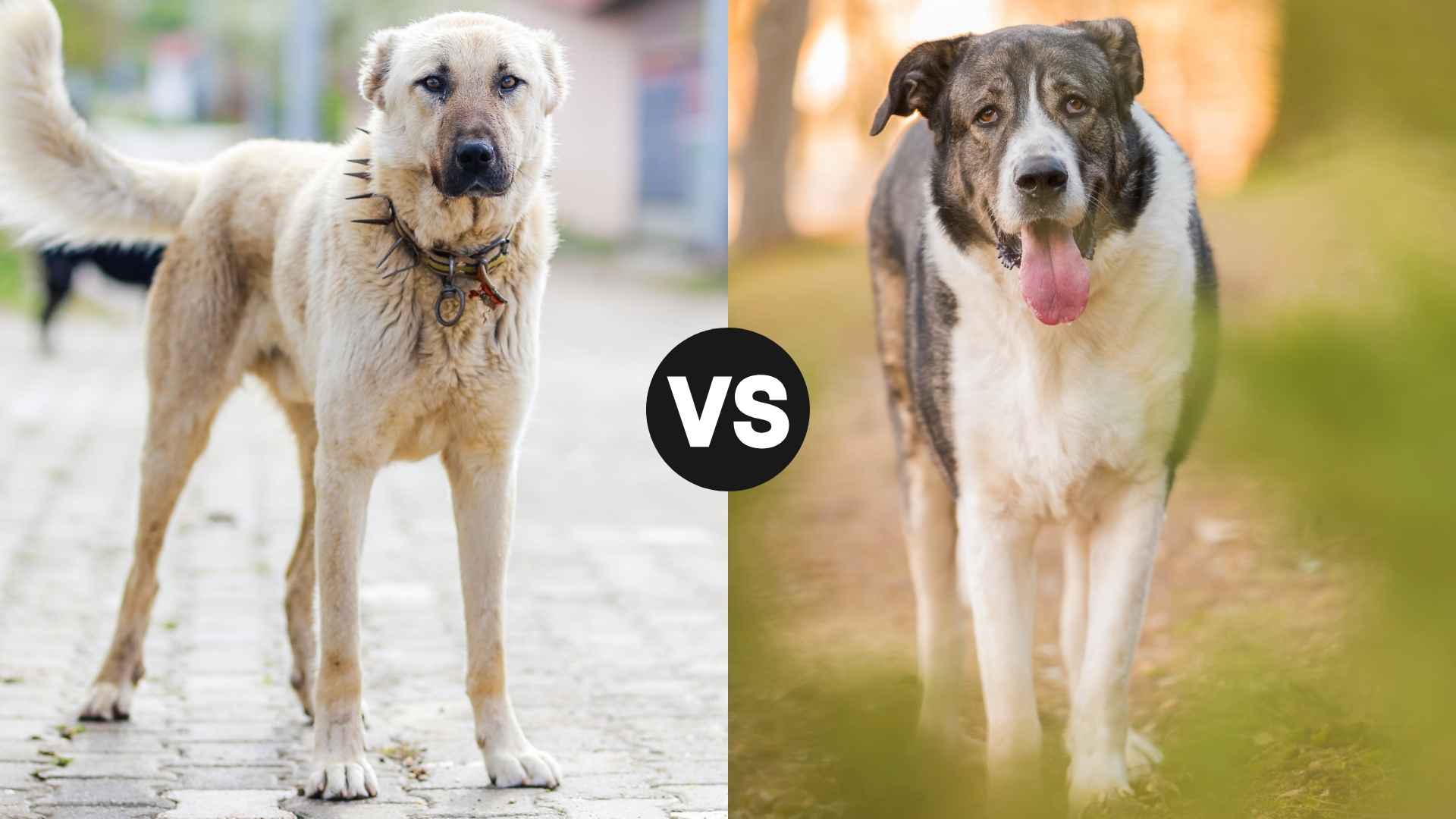Which breed is the best guardian for farms? This is the question many farmers ask when choosing the right livestock guardian dogs. Both of these giant breeds have deep roots in guarding herds, standing between your animals and deadly predators.
While they share the job title but their guarding styles, personalities, and needs are worlds apart. These dogs were bred for one purpose: to protect livestock. They are loyal, smart, and fearless. But which one is the better livestock guardian for your farm dogs?
Let’s compare their traits, temperament, and strengths to help you decide.
Anatolian Shepherd vs Spanish Mastiff: Which Protects Farms Better?
The Anatolian Shepherd is a highly territorial guardian, quick to respond when it senses danger. Known for being moderately reactive, it will escalate from barking to direct action if it perceives a real threat. While it has slightly lower energy levels than some other livestock guardian breeds, it still requires regular exercise and plenty of open space to patrol.
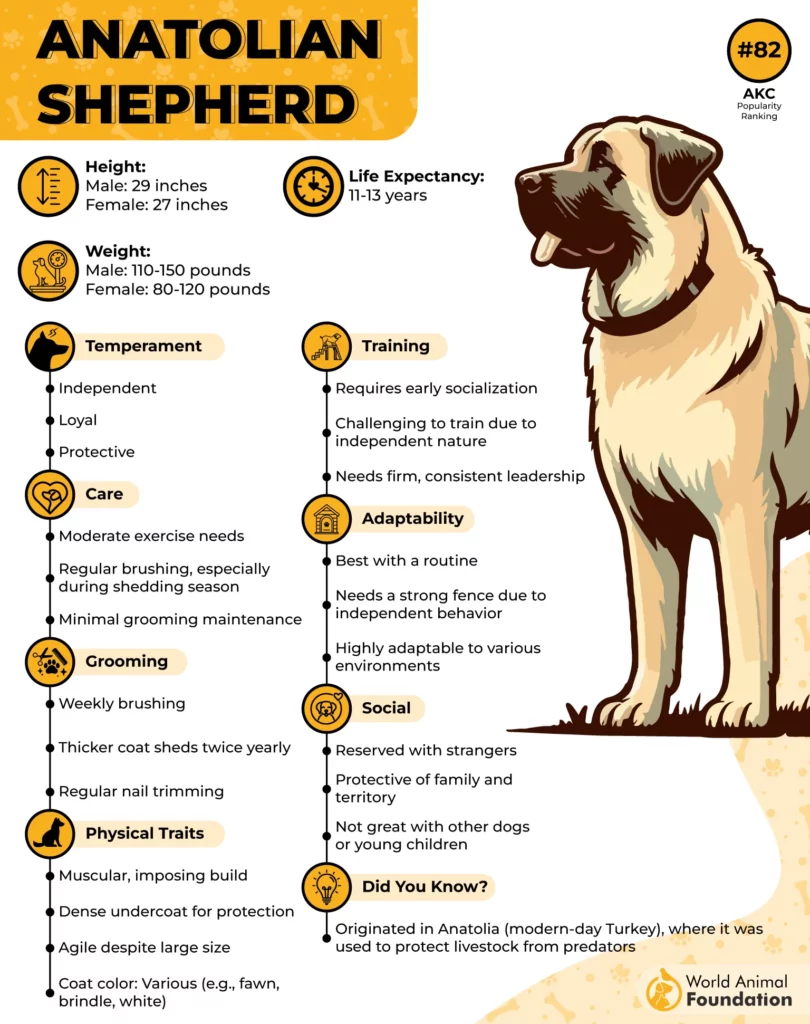
In contrast, the Spanish Mastiff tends to react more slowly, but when it decides to engage, its response can be fierce. This breed is generally less affectionate and can be stubborn, yet it benefits from consistent human interaction to maintain trust and cooperation. It excels in regions with large predators and typically shows less reactivity toward humans compared to some other guardians.
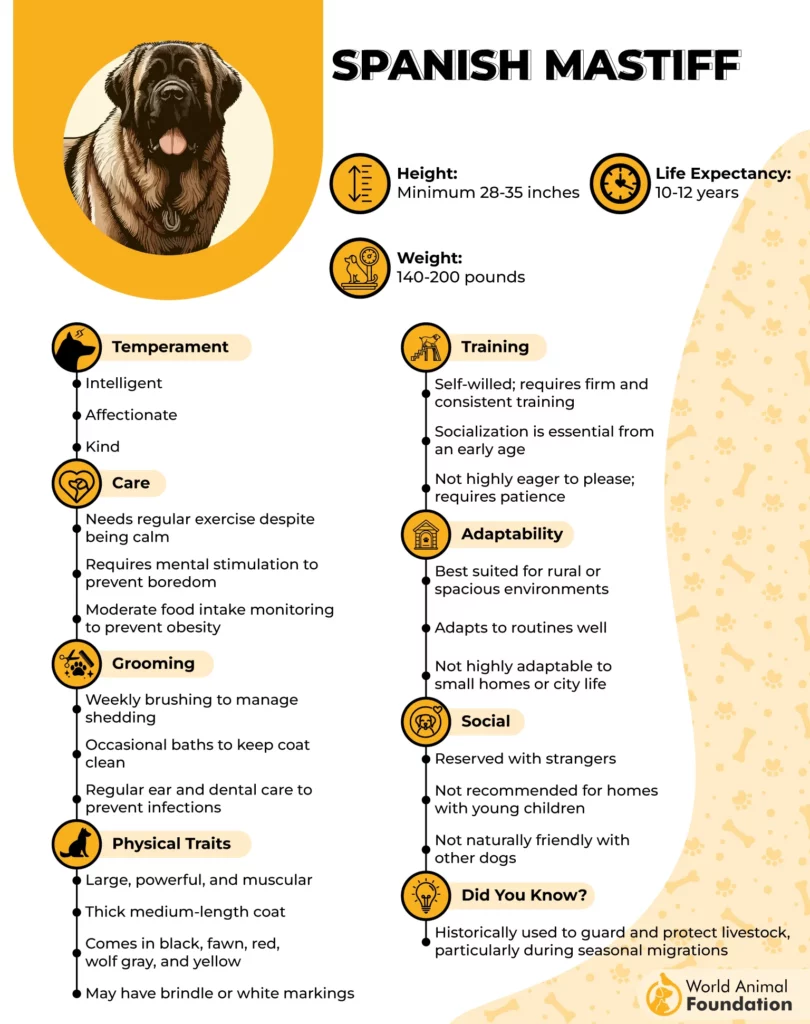
Let’s explore each of these remarkable breeds in detail to see how they compare in protecting farms.
Size and Weight Comparison
Both the Anatolian shepherd and Spanish mastiff are large dogs and powerful livestock guardian breeds. However, they differ in build and weight. Here’s a closer look at their exact sizes:
|
Breed |
Anatolian shepherd |
Spanish Mastiff | ||
|
Gender |
Male |
Female |
Male |
Female |
|
Height |
29 inches |
27 inches |
30-35 inches |
28-33 inches |
|
Weight |
110-150 lb |
80-120 lb |
140-200 lb |
110-170 lb |
Physical Strength and Bite Characteristics
The Anatolian shepherd dog is built for quick, powerful responses. It’s lean, muscular, and fast. Its strong bite and excellent stamina make it excellent at chasing off threats across large fields. This dog was bred in Turkey to patrol alone and make decisions fast, especially at night.
In contrast, the Spanish mastiff relies more on its massive strength and crushing bite. It doesn’t chase, it stands on its ground. With its heavy build and deep bark, it stops predators before a fight even begins.
Both breeds are known to protect livestock fiercely. They have been used to defend sheep, goats, and other animals in harsh environments for centuries
Playfulness and Exercise Requirements
Neither of these livestock guardian dogs is playful in the traditional sense. They won’t chase balls or play with toys like some herding breeds. But they do enjoy structure, routine, and the satisfaction of their guarding job well.
|
Trait |
Anatolian shepherd |
Spanish mastiff |
|
Energy level |
High needs daily Movement |
low to moderate |
|
Playfulness |
Low, prefers patrolling over playing |
Very low, serious, calm demeanor |
|
Exercise Needs |
Requires Large Space and mental stimulation |
Needs space but less physically demanding |
|
Activity Type |
Active patrols, long walks |
Slow patrols, quiet Presence |
|
Work Drive |
Strong, needs a job to feel satisfied |
Moderate, prefers relaxed watch duties |
Personality and Temperament
When it comes to guarding, personality matters. A good livestock guardian breed must be loyal, calm, and brave, but never aggressive without a cause. Neither of these farm dogs is overly social. They won’t jump on guests or play with other animals unless raised together.
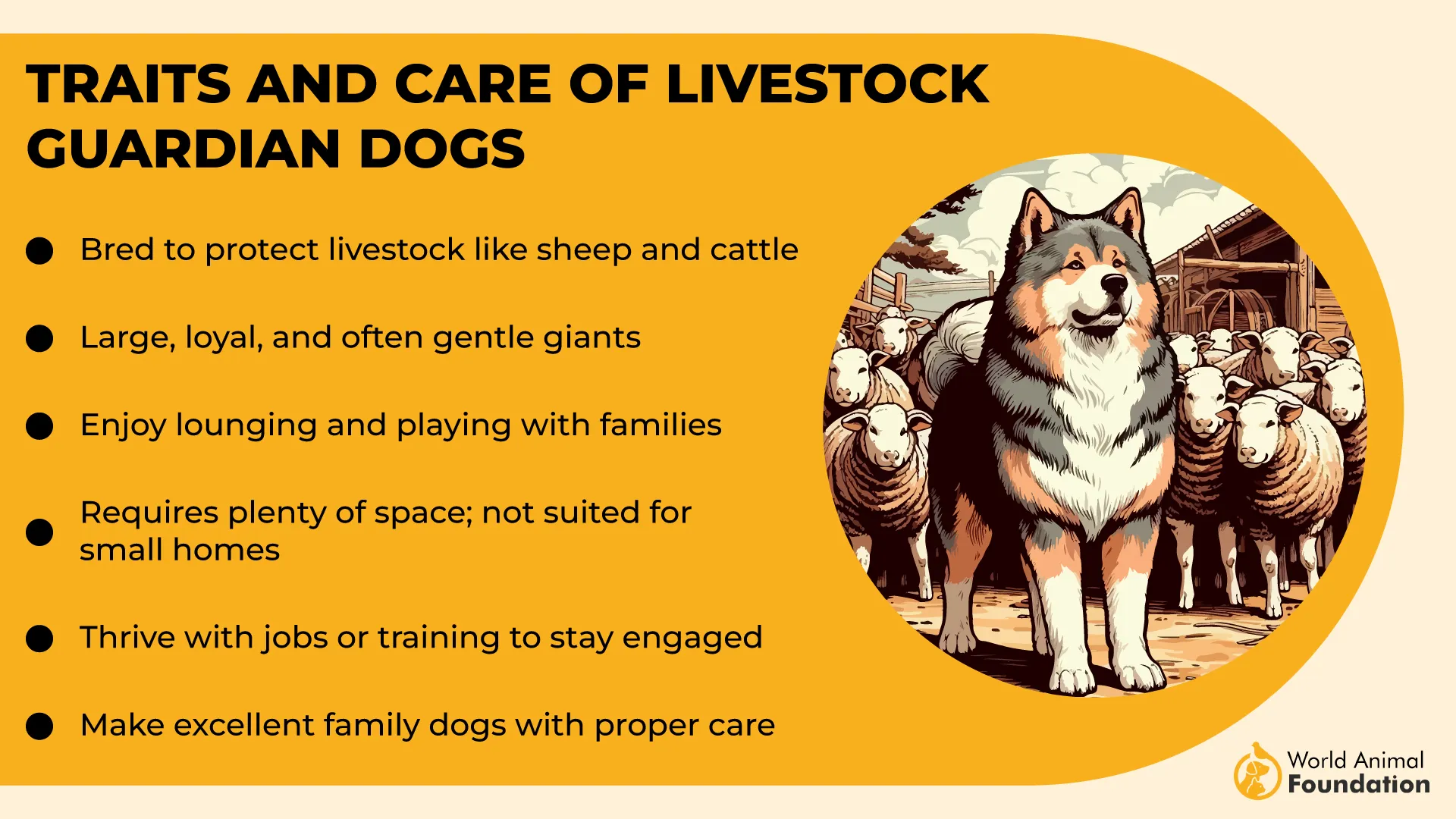
The Anatolian shepherd is a serious, alert, and highly independent guardian breed. It doesn’t trust strangers easily. This dog prefers to assess danger on its own and only follows commands it respects. It was bred to form strong bonds with the flock, not humans. However, it can be deeply loyal to its owner.
The Spanish mastiff is more affectionate. It still acts as a guard dog, but it’s more relaxed around family, children, and even other dogs. It doesn’t act quickly but makes thoughtful decisions.
In short:
The Anatolian shepherd is sharp, suspicious, and deeply loyal to its job
The Spanish mastiff is calm, steady, and easier around strangers and pets
Adaptability and Independence
A good livestock guardian dog must handle changing weather, unpredictable predators, and long hours alone. Here’s how Anatolian Shepherd and Spanish Mastiff compare:
Anatolian shepherd
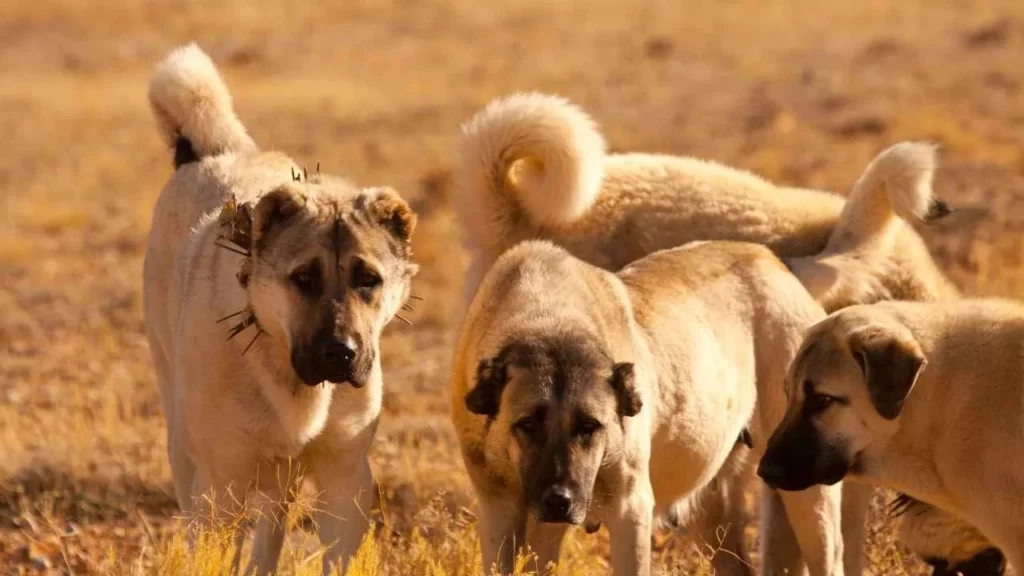
Bred in Turkey for tough climates, extreme heat, snow, and rugged terrain
Extremely independent, makes decisions without needing human input
Can guard other livestock alone for long periods
Less emotionally dependent on humans or other dogs
Spanish Mastiff
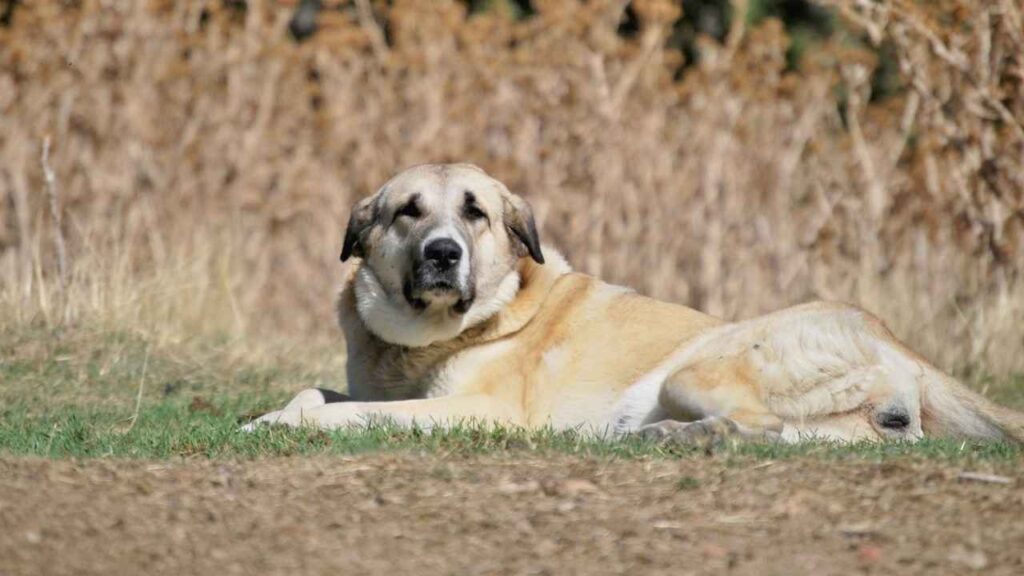
Very adaptable to cold due to thick double coat.
Less tolerant of heat: prefer a moderate climate
Somewhat independent, but more emotionally attached to family and pets
Bonds deeply with humans, making it a great companion as well as a good guardian breed
Compatibility with Children, Pets, and Strangers
The Anatolian shepherd dog is deeply loyal but highly protective. It was bred to make its own decisions, often without human input. This independence makes it cautious and suspicious around strangers, other dogs, and unfamiliar pets. Without early and ongoing socialization, it may try to guard its spaces a little too seriously. While it can be gentle with its own flock.
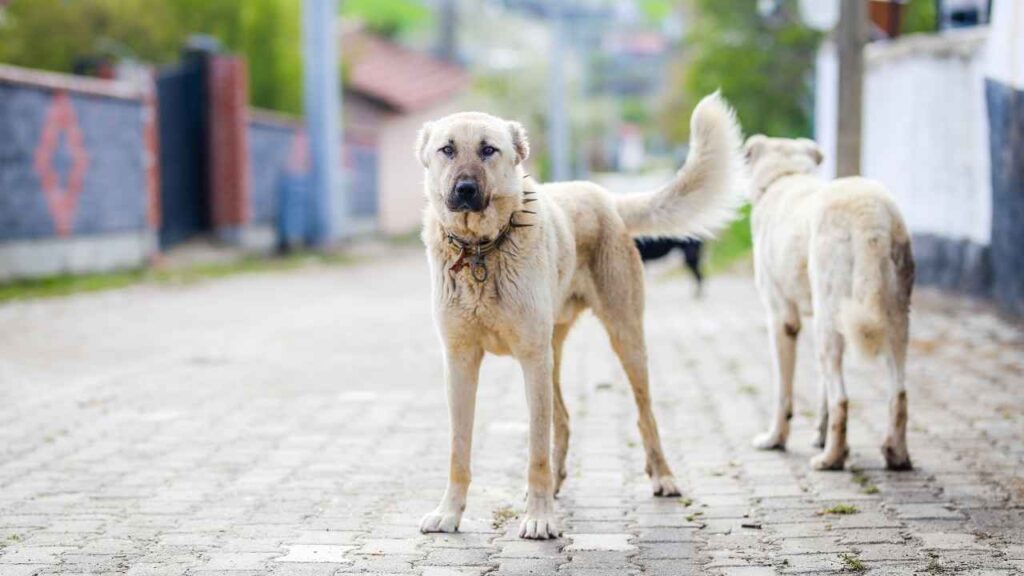
The Spanish Mastiff, on the other hand, has a calmer temperament. It’s known for being gentle, affectionate, and slow to react. It tends to form strong bonds with family and tolerates children and other animals well.
According to PetMD, this breed is a good dog choice for people with kids, provided it receives early training and gentle handling.
Health Issues and Lifespan Comparison
Both these livestock guardian dog breeds are strong and resilient, but they still need proper healthcare. The Anatolian shepherd is slightly more robust, while the Spanish Mastiff requires closer attention to weight and joint health.
|
Trait |
Anatolian Shepherd |
Spanish Mastiff |
|
Average Lifespan |
11-13 years |
10-12 Years |
|
Common Health Issues |
Hip Dysplasia, bloat, entropion |
Elbow dysplasia, obesity, and heart issues |
|
Coat Related Concerns |
Seasonal shedding, minor skin problems |
Heavy shedding, possible coat matting |
|
Weight-Related Risks |
Moderate risk of joint strain |
High risk of obesity related complications |
|
Veterinary Needs |
Regular checkups, hip and Eye exam |
Joint monitoring, weight management plans |
|
Hardiness |
Very rugged and Weather tolerant |
Physically tough, but less heat tolerant |
Diet, Nutrition, and Weight Management
According to the Purina feeding guide, large dogs over 100 lbs benefit from tailored nutrition that supports bone, heart, and digestive health. Choosing the right diet helps your guardian dog breed stay strong and ready for any threat.
Anatolian shepherd
Needs a high-protein diet to maintain lean muscle and energy for active patrols
Should be fed in at least two meals per day to prevent dangerous bloat.
Spanish Mastiff
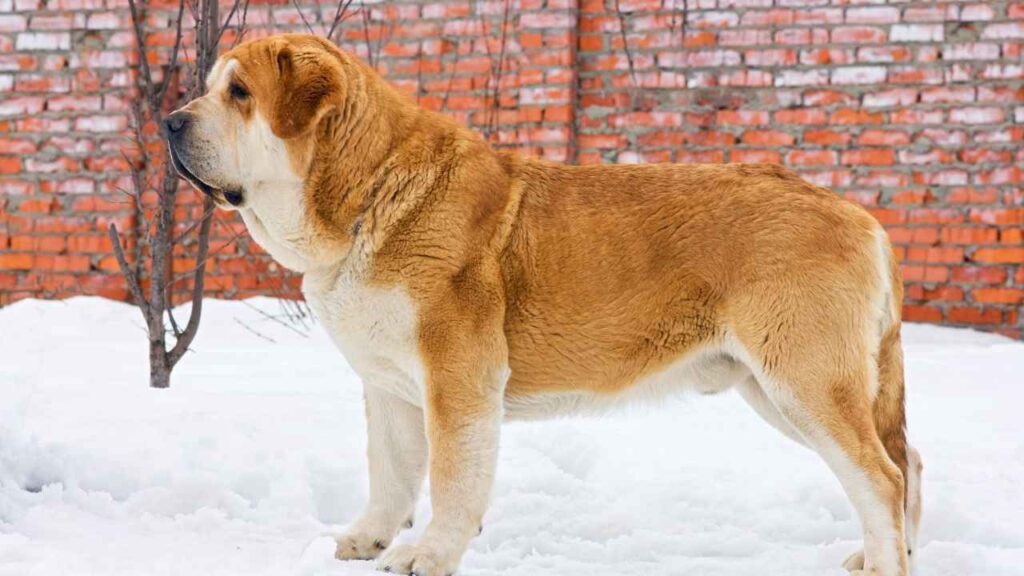
Requires Fewer calories per pound but still needs nutrient-dense food to avoid weight gain and joint strain
Benefit from controlled portion sizes and slower metabolism support
Grooming Needs and Allergy Potential
Both the Anatolian Shepherd and the Spanish Mastiff have a double, thick coat that protects them outdoors, but they also mean more shedding.
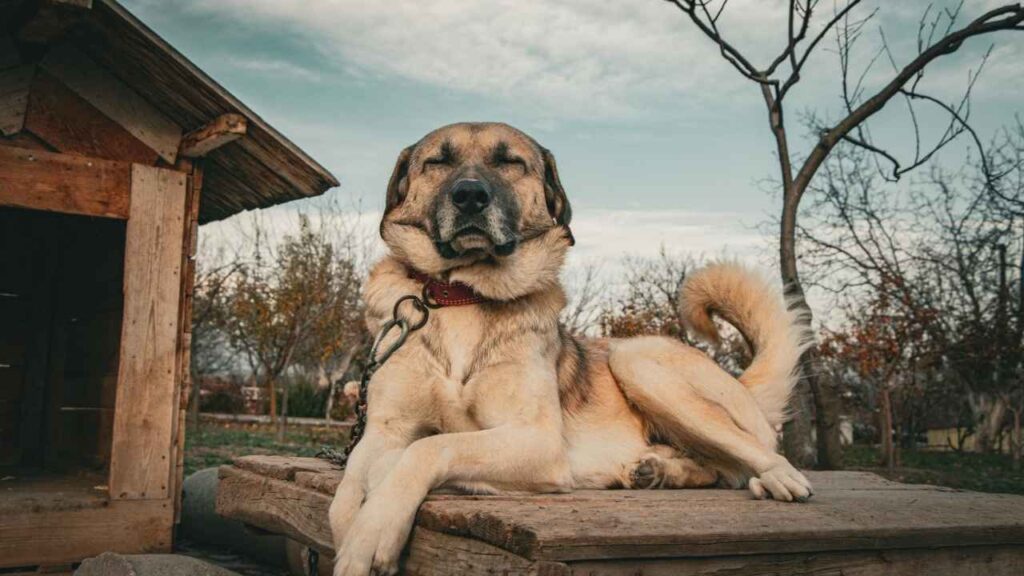
The Anatolian Shepherd sheds moderately year-round and heavily twice a year. Weekly brushing is usually enough to manage the coat and keep skin healthy.
The Spanish Mastiff sheds more. Its dense coat needs brushing several times a week, especially during seasonal changes, to prevent matting.
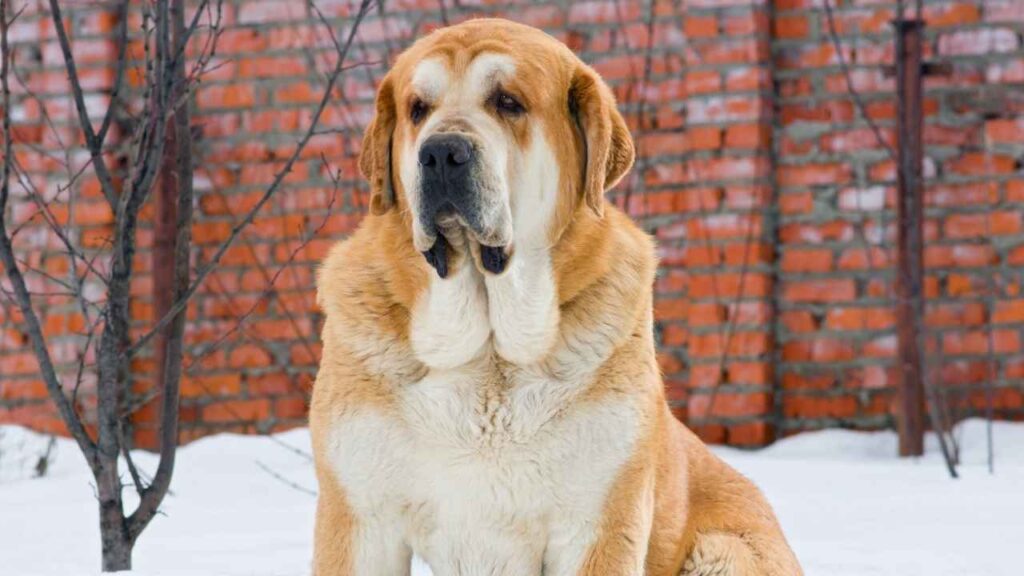
Neither breed is hypoallergenic. If you or your family has allergy concerns, it’s best to consult your vet before choosing either guarding dog breeds.
Conclusion
Choosing between the Anatolian Shepherd and the Spanish Mastiff isn’t easy. Both are powerful, loyal, and protective livestock guardian dog breeds. Both of them have centuries of experience behind them. But the right choice depends on your farm, your animals, and your lifestyle.
If you need a fast, alert, and independent protector, then Anatolian is your best bet. It’s sharp, serious, and born to guard without needing constant attention. This breed is happiest when it has a job to do and space to roam.
If you want a gentle giant who watches quietly, bonds with your family, and fits in with other animals, the Spanish mastiff may be a better match. It guards with heart and calm strength, blending perfectly into the farm life.


